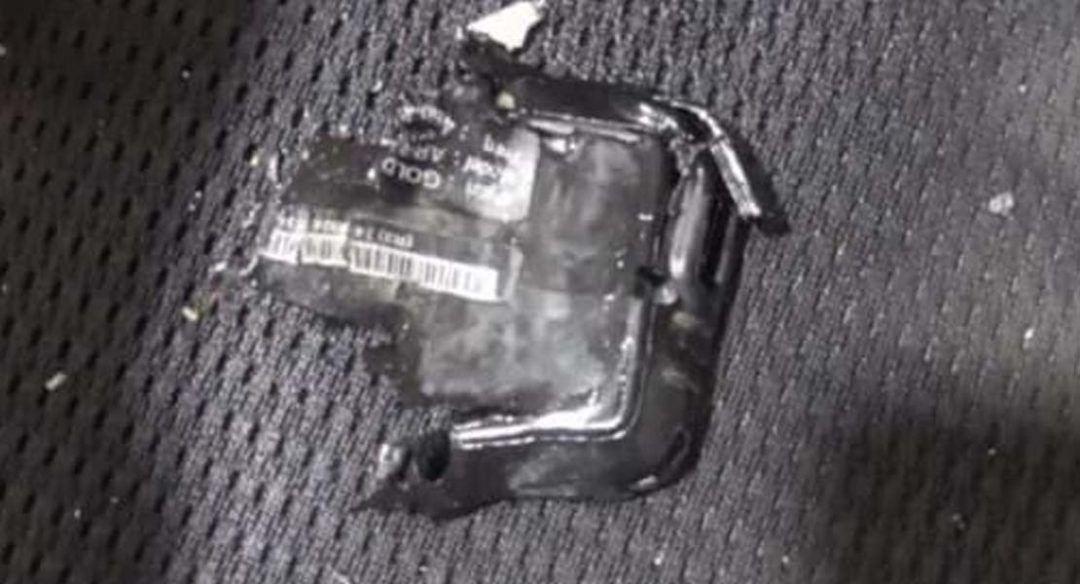
On September 17, Israel launched an unprecedented cyber-attack targeting Hezbollah members throughout Lebanon. The Hebrew state detonated the beepers worn by members of the militant group... without the knowledge of the United States, Israel's greatest ally. What does the Western press have to say about this shocking and highly revealing event?
Gold Apollo: from Taipei to Beirut
If the beepers exploded, it would be wise to start by questioning their source. It turns out that they all bore the logo of Gold Apollo, a Taiwan-based manufacturer of wireless paging systems.
According to Hezbollah officials, more than 3,000 beepers were ordered from Gold Apollo. However, the Taiwanese company claimed on Wednesday that Hezbollah's branded pager bombs were produced and sold by its Hungarian partner BAC.
The model mentioned in the media “is produced and sold by BAC,” Apollo Gold said in a statement after the New York Times reported that the Taiwanese group's pagers were involved in the explosions. “Our company only provides authorization to use the brand and is not involved in the design and manufacture” of this beeper, it insisted. But how did these beepers explode?
Was the Supply Chain Infiltrated?
A first report, put forward by the New York Times, assumes that Israel hid explosives in a shipment of beepers ordered by Hezbollah from Gold Apollo. These beepers, mainly AR924 models, would have been booby-trapped with explosive charges placed next to the battery, ready to be detonated remotely.
According to this version, a message sent at 3:30 p.m. on Tuesday, seemingly from Hezbollah’s leadership, triggered the explosives inside the devices. The resulting explosions wreaked havoc, especially among Hezbollah members using the pagers.
Cybersecurity experts, including Mikko Hypponen of WithSecure, said that the intensity of the explosions suggested the beepers had been tampered with in ways beyond a simple battery malfunction.
This supports the hypothesis of a meticulous infiltration of the Hezbollah supply chain by Israeli services, enabling the insertion of sophisticated explosives into the devices. And what was the aim of such an attack?
Israel on to Plan B?
Another theory, presented by Al-Monitor and Axios citing Israeli officials, is that Israel had originally planned to detonate the beepers only in the event of a large-scale conflict with Hezbollah. The goal was to gain a major strategic advantage by disrupting the group’s communications.
Axios quotes a former Israeli official with knowledge of the operation. He stated that Israeli intelligence planned to use the booby-trapped pagers they had managed to “place” in Hezbollah's ranks as a surprise kick-off to an all-out war to try to paralyze Hezbollah.
However, suspicions within Hezbollah led to the early execution of the plan. Al-Monitor reports, citing Israeli sources, that the first Hezbollah member was killed after detecting an anomaly in the beepers. Shortly afterward, another member of the group, having planned to inform his superiors of the possible flaws, is said to have precipitated the Israeli decision.
Fearing the discovery of the plan, Israel would have opted for an immediate activation of the explosives, causing the extensive damage observed.
This incident, where technology and strategy intertwine, raises a disturbing question: how far can information warfare go when it manipulates seemingly innocuous objects like beepers to unleash such devastation?
Gold Apollo: from Taipei to Beirut
If the beepers exploded, it would be wise to start by questioning their source. It turns out that they all bore the logo of Gold Apollo, a Taiwan-based manufacturer of wireless paging systems.
According to Hezbollah officials, more than 3,000 beepers were ordered from Gold Apollo. However, the Taiwanese company claimed on Wednesday that Hezbollah's branded pager bombs were produced and sold by its Hungarian partner BAC.
The model mentioned in the media “is produced and sold by BAC,” Apollo Gold said in a statement after the New York Times reported that the Taiwanese group's pagers were involved in the explosions. “Our company only provides authorization to use the brand and is not involved in the design and manufacture” of this beeper, it insisted. But how did these beepers explode?
Was the Supply Chain Infiltrated?
A first report, put forward by the New York Times, assumes that Israel hid explosives in a shipment of beepers ordered by Hezbollah from Gold Apollo. These beepers, mainly AR924 models, would have been booby-trapped with explosive charges placed next to the battery, ready to be detonated remotely.
According to this version, a message sent at 3:30 p.m. on Tuesday, seemingly from Hezbollah’s leadership, triggered the explosives inside the devices. The resulting explosions wreaked havoc, especially among Hezbollah members using the pagers.
Cybersecurity experts, including Mikko Hypponen of WithSecure, said that the intensity of the explosions suggested the beepers had been tampered with in ways beyond a simple battery malfunction.
This supports the hypothesis of a meticulous infiltration of the Hezbollah supply chain by Israeli services, enabling the insertion of sophisticated explosives into the devices. And what was the aim of such an attack?
Israel on to Plan B?
Another theory, presented by Al-Monitor and Axios citing Israeli officials, is that Israel had originally planned to detonate the beepers only in the event of a large-scale conflict with Hezbollah. The goal was to gain a major strategic advantage by disrupting the group’s communications.
Axios quotes a former Israeli official with knowledge of the operation. He stated that Israeli intelligence planned to use the booby-trapped pagers they had managed to “place” in Hezbollah's ranks as a surprise kick-off to an all-out war to try to paralyze Hezbollah.
However, suspicions within Hezbollah led to the early execution of the plan. Al-Monitor reports, citing Israeli sources, that the first Hezbollah member was killed after detecting an anomaly in the beepers. Shortly afterward, another member of the group, having planned to inform his superiors of the possible flaws, is said to have precipitated the Israeli decision.
Fearing the discovery of the plan, Israel would have opted for an immediate activation of the explosives, causing the extensive damage observed.
This incident, where technology and strategy intertwine, raises a disturbing question: how far can information warfare go when it manipulates seemingly innocuous objects like beepers to unleash such devastation?
Read more



Comments